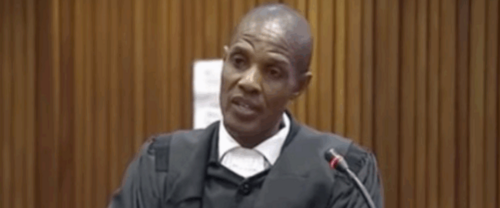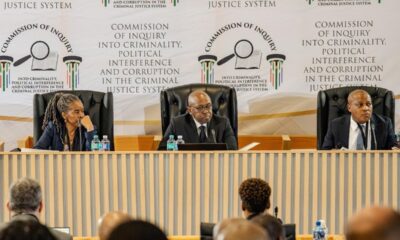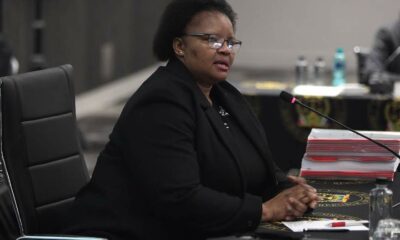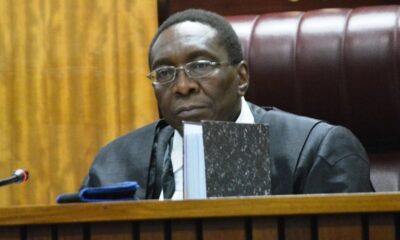News
Running from Duty? Advocate’s Comrades Marathon Request Raises Eyebrows in Senzo Meyiwa Trial

A courtroom outburst. A marathon medal. A nation divided.
In South Africa, few events are as sacred to athletes as the Comrades Marathon. It’s not just a race, it’s a pilgrimage. But this year, it wasn’t only the runners who stole headlines. Advocate Charles Mnisi’s request to be excused from court proceedings on Monday, after running Sunday’s Comrades, left the legal world and social media reeling.
His absence wasn’t just from any courtroom. He’s representing one of the accused in the high-profile Senzo Meyiwa murder trial, a case that has dragged on for nearly a decade, leaving a grieving family desperate for closure.
“Justice Delayed Is Justice Denied”
High Court Judge Ratha Mokgoatlheng didn’t mince his words. During Thursday’s session, he went on a tirade about Mnisi’s request, decrying it as emblematic of the state of the justice system.
“This is what happens in a South Africa run by blacks,” the judge said, a line that sparked outrage far beyond courtroom walls.
Good party’s Brett Herron condemned the remark as “racially divisive” and “entirely unacceptable.” Others on social media, from legal minds to ordinary citizens, echoed the concern. The bigger question, however, wasn’t just about race. It was about responsibility.
Can You Really Skip Court for Comrades?
To be clear, Mnisi wasn’t asking to skip court for the race itself, but for the day after. Still, it struck many as tone-deaf. The Meyiwa case is one of the most emotionally charged trials in recent South African history. For an advocate to put personal glory — even one as noble as completing 90 kilometres of agony from Pietermaritzburg to Durban, before the slow grind of justice, was always going to cause a stir.
One can’t help but wonder: Could Mnisi, a senior and presumably well-compensated lawyer, not have caught a late flight back to Johannesburg Sunday night? Or an early one Monday morning? Was missing court really the only option?
The Race vs The Responsibility
Anyone who’s run the Comrades knows what comes after: pain, stiffness, and a deep desire to never move again. As someone who’s completed five of them myself, I remember the proud limp through Jan Smuts airport after each one. The ache in your legs is real, but so is the badge of honour.
Had Mnisi hobbled into court on Monday, medal in pocket and legs like jelly, he might have inspired more admiration than outrage. Imagine that moment, bruised, blistered, but present.
Because isn’t that what both law and long-distance running demand? Grit. Discipline. The ability to show up when every part of you wants to stay in bed.
The Bigger Picture: Courtroom Conduct and National Perception
It’s worth asking: Do South African advocates take any kind of ethical oath, like the Hippocratic one for doctors? Technically, no. But they are bound by a code of conduct that demands they serve their clients with diligence and respect the legal process. Choosing a race over a court date , even if it’s just the recovery day, sits uneasily with that mandate.
Then there’s the public perception. South Africans are weary. Of delays. Of empty chairs in the dock. Of justice that feels like it moves in slow motion. The Senzo Meyiwa trial, with its twists and postponements, has become symbolic of this frustration. Mnisi’s absence, though perhaps minor in isolation, landed like salt on an open wound.
A Test of Character, in Court and on the Road
The irony is poetic. Both the Comrades and the courtroom are tests of will. One is about enduring pain to cross the finish line. The other is about enduring procedure to reach justice. Both require commitment — to training, to integrity, to showing up when it counts most.
Mnisi may have earned his medal, but in the court of public opinion, the jury is still out.
This isn’t about demonizing runners, or denying anyone the right to chase personal milestones. But when you’re standing in the middle of one of the country’s most closely watched trials, the rules — and expectations — are different. The finish line doesn’t move because your legs are tired. Not in court. Not in justice.
And for Senzo Meyiwa’s family, who’ve been waiting nearly ten years, every missed step feels like another marathon they didn’t sign up for.
{Source: The Citizen}
Follow Joburg ETC on Facebook, Twitter , TikTok and Instagram
For more News in Johannesburg, visit joburgetc.com



























